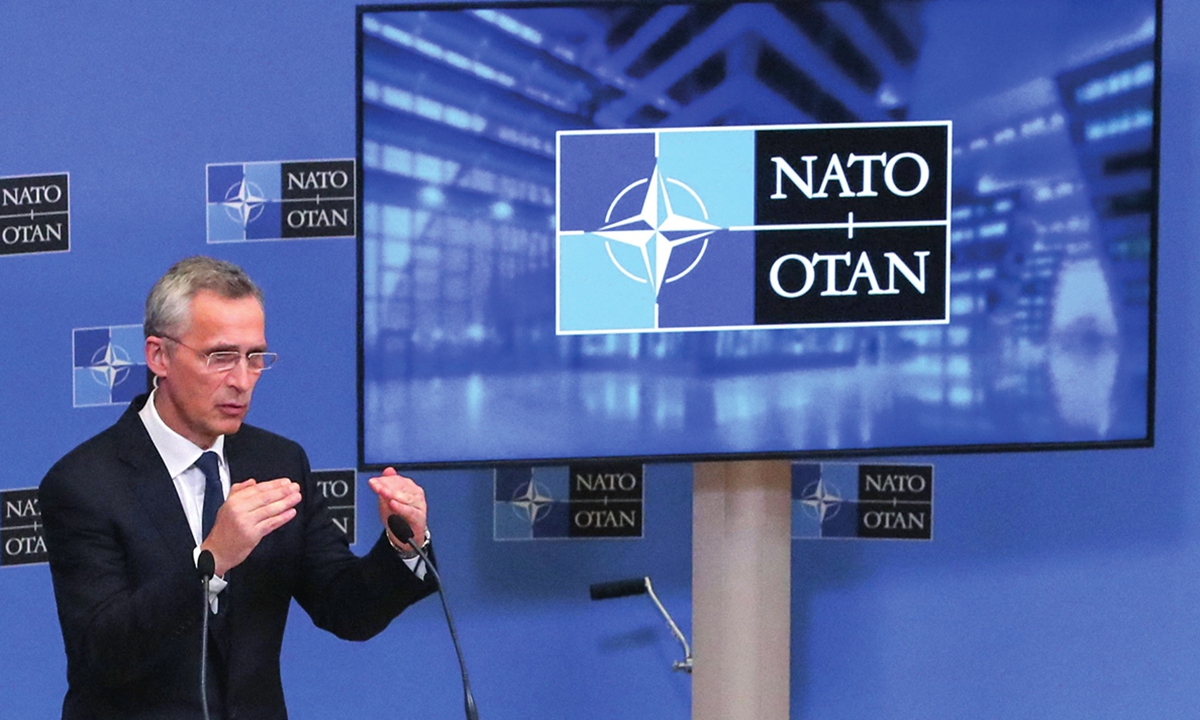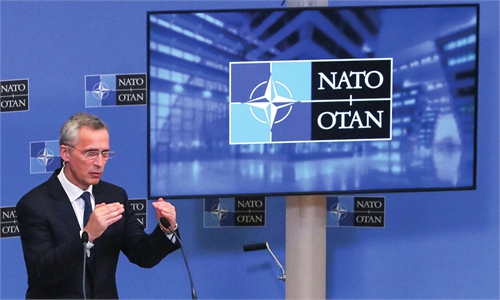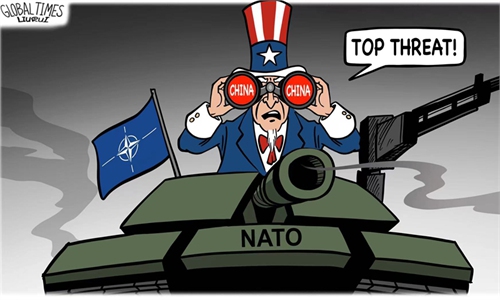
NATO Secretary General Jens Stoltenberg. Photo: VCG
While the relationship between China and the European Union (EU) has started to see sparks, some Western politicians feel like they have to rain on its parade by hyping the clichéd "China threat" theory.As the West attempts to move away from "dependence" on Russian energy supplies, NATO Secretary General Jens Stoltenberg warned Monday that the West must be careful not to create a "new dependence" on China. "We see growing Chinese efforts to control our critical infrastructure, supply chains and key industrial sectors," he noted while urging Western countries to increase their resilience.
It's uncommon to see the leader of a regional security organization such as NATO talk about an economic issue. Apparently, the transatlantic alliance's playing of the "China is a security threat" card has now extended to the economic sphere. Moreover, Stoltenberg has shown his organization's ambition to play a more significant role in the US strategy against China by showing more presence when China-related topics are involved.
As the US has shifted its focus more on the strategic competition with China over the past years, it has increasingly incorporated China-related issues into the foreign policies of many Western countries and organizations. In particular, Washington has shaped NATO into an important grip for it to maintain its global hegemony. As a result, with great hostility toward China, the organization, in its new strategic concept announced in June, unprecedentedly describes China as "a challenge to its interests, security and values."
Stoltenberg, or NATO, now essentially speaks out for the US, not for Europe. As a US tool, NATO is, in fact, weakening the EU. Having long become a liability for the development of the EU, the organization now plays a destructive role in the Russia-Ukraine conflict and Europe's political landscape.
Gao Jian, director of the Center for British Studies at Shanghai International Studies University, told the Global Times that Stoltenberg said those words to some European countries that are gradually moving toward a pursuit of balance and pragmatism between China and the US. This includes the leaders of Germany and France, who have recently made more neutral and rational statements about China. Dutch Foreign Trade Minister Liesje Schreinemacher also made similar remarks on Friday, claiming that her country will "not copy the American measures one-to-one."
All these have for sure fidgeted the US, and Stoltenberg's words on Western "dependence" on China echo Washington's unpleasant sentiment while attempting to sway the choice of European countries once again.
Stoltenberg's remarks manifest how some European politicians have spared no effort in ideologizing and politicizing economic and trade issues. Without any logic and basis, he is trying to create a narrative that plays up the so-called threats from China.
While encouraging a confrontation or even a "decoupling" between the West and China, some Western politicians are putting Europe's stability and future development at stake. But against the backdrop of the unstoppable economic globalization, it is obviously arrogant and closed-minded to seek an antagonism by ideologizing and politicizing economic and trade issues.
Moreover, the Russia-Ukraine conflict has already hit the European economy quite hard. As the war continues and its spillover effects linger on, the EU economy is slowly losing its dynamic and driving force for growth, putting its potential in question.
Therefore, this has made cooperation with China, one of its largest trading partners, more prominent for Europe. China has now become an option that Europe, in both reality and theory, cannot avoid.
And pushing for a so-called decoupling from China is like promoting self-harm for Europe, a result that the US is willing to see. In a recent interview with the Global Times, Dutch MEP Marcel de Graaff said it is very much in the interest of the US to get Europe as poor and devastated as possible. "Because if they're going to lose Europe, they better lose these ruined countries than those with a good industry, good economy and a healthy financial system … It's more in their interest when we are completely ruined," he noted.
To avoid becoming a pawn for US interests completely, Europe needs a more sober view on its relations with China. Many European politicians are used to viewing China from an ideological perspective, mechanically applying their experience with Russia to China, and thinking about China policy based on their relations with the US. These inappropriate approaches have pushed Europe onto the wrong path.
The recent attitude of some European leaders should become a wake-up call to the broader Europe. In an era full of uncertainties and challenges, the EU needs more rationality to work with China as partners for the benefit of each other, Eurasia and the whole world.


